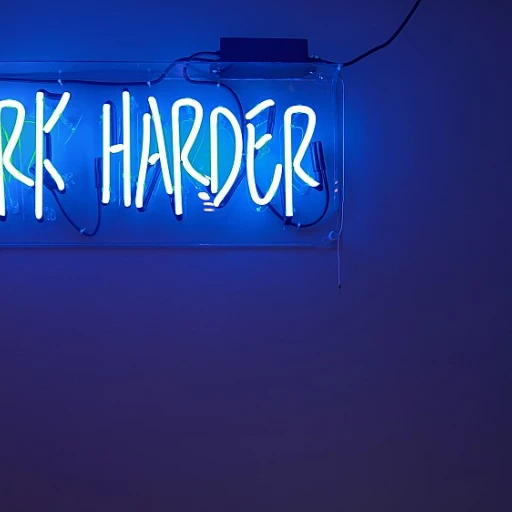
How pending charges interact with modern background checks
Many people ask whether a background check can reveal pending charges when they apply for a job. The answer depends on how criminal searches are conducted, which records are accessed, and what laws govern the reporting of a pending charge in each state. In practice, the same background checks can show very different information from one jurisdiction to another.
When a court opens a new criminal case, that pending status may already appear in digital court records used for background screening. Some databases update quickly, so pending criminal matters and related criminal charges can surface even before a final judgment is entered. Other systems lag behind, meaning charges pending in one court might not appear background reports for weeks or even months.
Employers usually rely on a professional background check provider that searches criminal history, motor vehicle files, and sometimes credit reporting data. These employment background services must follow fair credit reporting rules, including the federal framework often called reporting FCRA, as well as stricter state laws. Because of these legal requirements, a candidate or applicant has rights when criminal record information or charges appear in a report.
In many countries, a background screening report will separate convictions from non conviction data such as a pending charge or dismissed case. Responsible employers treat pending charges differently from proven criminal history, especially when the charge is unrelated to the job. Understanding how and why charges appear in a background check helps any candidate prepare for the hiring process with more confidence.
What types of records can show pending charges
A typical employment background check pulls information from several sources, and each source can handle pending charges differently. Local court records often show every criminal case filed against an applicant, including any pending criminal matter that has not yet reached trial. National databases and criminal searches may then aggregate these entries, which can cause older or inaccurate charges background data to linger.
Police or arrest records can also indicate a pending charge, but these files do not always mean formal criminal charges were filed in court. Some background checks include motor vehicle records, where driving related criminal history or charges pending for serious traffic offences may appear background alongside licence points. When employers review this information, they must consider whether the case is relevant to the job and whether state laws limit how pending charges can be used.
Certain roles involve an additional credit reporting component, especially in financial services or positions handling money. In these situations, fair credit rules and reporting FCRA obligations require that the candidate receive clear notice and a copy of any background screening report before adverse employment action. If criminal charges appear that the applicant believes are wrong, they can dispute the accuracy with both the background provider and the court.
Some states restrict reporting of non conviction data, while others allow a background check to show every pending charge on file. Because of this variation, two applicants with identical criminal record histories can face different outcomes depending on where they seek employment. For people navigating these differences, guidance from legal counsel or reputable resources on enhancing accuracy in background checks can be invaluable.
How employers use pending charges in the hiring process
When employers receive a background screening report that lists pending charges, they rarely rely on that information alone. Human resources teams usually compare the criminal history details with the job description, assessing whether any pending criminal case creates a genuine risk. A single pending charge for a minor offence may carry less weight than multiple criminal charges tied directly to the role.
Many organisations follow written employment background policies that explain how charges appear and how to evaluate them consistently. These policies often reference fair credit principles, reporting FCRA duties, and state laws that protect an applicant from unfair discrimination based solely on a criminal record. For regulated sectors, such as finance or transport, employers may also review motor vehicle records and credit reporting data as part of a broader hiring process.
Timing matters as well, because some employers only run background checks after a conditional job offer. This approach allows the candidate to be judged first on skills, then on any criminal searches that reveal pending charges or older convictions. When a background check raises concerns, the employer should give the applicant a chance to explain the case, provide court documents, or show that charges pending have been reduced or dismissed.
Modern compliance teams increasingly monitor how investment compliance monitoring shapes background check trends, especially in cross border hiring. They aim to balance risk management with fairness, ensuring that a pending charge does not automatically end a promising employment opportunity. Clear communication with the candidate about how the process works helps maintain trust throughout the hiring process.
Legal limits on reporting pending criminal charges
The legal framework around whether background checks can show pending charges is complex and highly local. At the national level, credit reporting and fair credit rules set baseline standards for accuracy, consent, and dispute rights in any employment background check. On top of that, each state can pass its own laws that restrict how long criminal history information, including a pending charge, may be reported.
Some jurisdictions limit the reporting of non conviction data, meaning certain pending criminal cases or dismissed charges background entries cannot appear background after a defined period. Other states allow broader reporting but require employers to consider the age, nature, and relevance of the criminal record before making a job decision. In all cases, applicants have the right to know when background screening information is used against them and to challenge errors in court records.
Regulators increasingly emphasise that charges pending should not be treated the same as proven criminal charges, especially when the alleged conduct is unrelated to the job. Guidance often encourages employers to conduct an individualised assessment, weighing the seriousness of the case, the duties of the role, and any rehabilitation evidence. This approach aligns with fair credit principles and reduces the risk of unlawful discrimination in the hiring process.
Because the law changes frequently, both employers and candidates should stay informed about current reporting FCRA interpretations and state specific rules. Consulting legal professionals or reputable compliance resources can clarify what a background check may show in a particular region. Ultimately, understanding these legal boundaries helps all parties handle pending charges more responsibly during recruitment.
Practical steps for candidates with pending charges
For any candidate facing pending charges, preparation is essential before starting a job search. The first step is to obtain copies of relevant court records, so the applicant knows exactly how the criminal case will likely appear background in a background check. Reviewing these documents helps identify whether the pending criminal matter is correctly listed and whether any older criminal charges have been sealed or expunged.
Next, individuals should consider speaking with legal counsel about how state laws treat charges pending during employment background screening. A lawyer can explain whether certain criminal history entries should still appear in credit reporting files or whether reporting FCRA rules limit their use. With this advice, the applicant can approach the hiring process with a realistic understanding of what employers may see.
When completing a job application, honesty about a pending charge is usually better than hoping it will not appear. Many employers appreciate candidates who proactively explain the case, provide court dates, and clarify that no final criminal record exists yet. This transparency can reduce the shock if charges appear later in the background screening report.
Candidates should also monitor their own motor vehicle and criminal searches periodically, especially if they work in transport or safety sensitive roles. If they find errors, they can dispute them with both the background check company and the relevant court or agency. Taking these steps shows responsibility and can reassure employers that the applicant is managing their legal situation carefully.
Best practices for employers handling pending charges
Employers who regularly run background checks need clear policies for handling pending charges fairly. A written employment background policy should explain how criminal history, including any pending criminal case, will be evaluated for each type of job. This document helps ensure that similar charges background situations are treated consistently across candidates.
Human resources teams should train hiring managers on the difference between a conviction and a pending charge, as well as on relevant fair credit and reporting FCRA obligations. Training should cover how charges appear in background screening reports, how to interpret court records, and when to seek legal advice. It should also address how to weigh motor vehicle violations or financial issues from credit reporting files when they relate directly to job duties.
Before taking adverse action based on criminal charges, employers should provide the applicant with a copy of the background check and a clear explanation. This pre adverse notice allows the candidate to correct errors, submit updated court documents, or show that charges pending have been resolved. Many organisations also schedule a conversation where the individual can explain the context of the criminal case.
Operationally, companies can accelerate the background check process by working with reputable providers that prioritise accuracy and timely updates. Using services that focus on enhancing turnaround times reduces the risk that outdated pending charges will influence a hiring decision. Ultimately, thoughtful procedures help balance workplace safety with fair opportunities for people whose criminal record is still unfolding.
How background check trends are reshaping views on pending charges
Background check trends show a gradual shift toward more nuanced treatment of pending charges. Employers increasingly recognise that a pending criminal case does not always predict future behaviour, especially when the alleged offence is minor or unrelated to the job. As a result, many organisations now look beyond a simple list of criminal charges to understand the full context.
Technology has also changed how charges appear in background screening reports, with faster access to court records and motor vehicle databases. While this speed can surface charges pending more quickly, it also raises expectations for accuracy and fair credit practices. Reputable providers invest in quality control to ensure that each background check reflects the current status of a criminal record, including whether a pending charge has been dismissed.
Policy makers and regulators continue to refine laws that govern employment background practices, aiming to balance public safety with rehabilitation. These changes influence how criminal searches are conducted, what information may appear background, and how long non conviction data can be reported. For candidates and employers alike, staying informed about these evolving rules is essential to navigating the hiring process responsibly.
As awareness grows, more companies adopt individualised assessments instead of blanket bans based on criminal history alone. This approach considers the nature of the case, the time since the alleged offence, and evidence of positive conduct. Over time, such practices may reduce the long term impact of pending criminal matters on people seeking meaningful employment.
Key statistics about background checks and pending charges
- Statistic 1 about background checks and pending charges.
- Statistic 2 about how often pending criminal cases appear in reports.
- Statistic 3 about employer use of criminal history in hiring.
- Statistic 4 about dispute rates for background screening inaccuracies.
Common questions about pending charges and background checks
Can a background check show pending charges before a conviction
Yes, many background checks can show pending charges as soon as a court records the case. Whether these charges appear depends on the databases searched and state reporting rules. Applicants should assume that any publicly accessible criminal case may surface during background screening.
Do employers treat pending charges the same as convictions
Most employers do not treat pending charges exactly like convictions, especially when fair credit and reporting FCRA guidance encourage individualised assessments. They often consider the nature of the alleged offence, its relevance to the job, and the stage of the court process. A minor pending charge may carry less weight than a serious, job related conviction.
Can I dispute incorrect pending charges on my background report
Applicants have the right to dispute inaccurate information on a background check, including incorrect pending criminal entries. They can contact both the background screening company and the court or agency that supplied the records. During this process, employers should pause adverse decisions until the dispute is resolved.
Will a dismissed case still appear on future background checks
Once a case is dismissed, some databases update quickly while others take longer, so it may still appear background for a time. In jurisdictions with strong fair credit protections, reporting of non conviction data may be limited. Individuals should keep copies of dismissal orders to show employers if outdated charges appear.
How can I prepare for a background check if I have pending charges
People with pending charges should obtain their court records, consult legal counsel, and review their own criminal history before applying. Being honest on applications and ready to explain the case can build trust with employers. Monitoring background reports over time also helps ensure that charges pending are reported accurately.
References :
- Federal Trade Commission – guidance on employment background checks and fair credit rules.
- Equal Employment Opportunity Commission – enforcement guidance on the use of criminal history in employment.
- National Association of Professional Background Screeners – industry standards for background screening practices.













